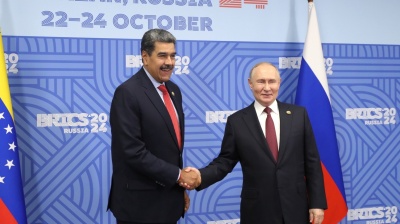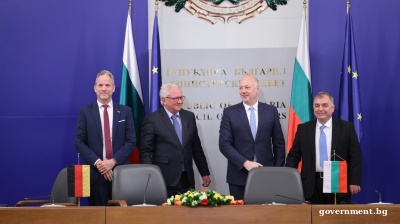Bulgaria has temporarily suspended exports of petroleum products to European Union countries after the United States imposed sanctions on Russian oil giant Lukoil, the Bulgarian state news agency BTA reported on October 31.
The National Assembly voted 135-4 in favour of the measure, with 42 abstentions, amid concerns that the US sanctions could disrupt the local fuel market and threaten energy security.
The export ban, which mainly affects diesel and aviation fuel, will not apply to refuelling of ships and aircraft or to supplies for the armed forces of EU and Nato member states.
Budget Committee chair Delian Dobrev said the decision was a “preventive measure” designed to protect Bulgaria’s domestic market from potential price manipulation and shortages, BTA reported.
The move follows sanctions announced on October 22 by US President Donald Trump against Lukoil and Rosneft, Russia’s two largest oil exporters, over their alleged role in financing Moscow’s military operations.
Lukoil, through its Swiss-registered subsidiary Litasco, owns Lukoil Neftochim Burgas — the largest oil refinery in the Balkans — as well as Lukoil Bulgaria, one of the country’s leading fuel retailers. Lukoil controls roughly half of Bulgaria’s wholesale fuel market.
The sanctions are expected to hinder Lukoil’s access to international banking systems and dollar-based transactions, complicating its operations in Bulgaria.
Dobrev said the restrictions would not affect gasoline exports, noting that Bulgaria’s domestic production exceeds internal demand. Diesel accounts for over 80% of Bulgaria’s fuel consumption, compared to less than 20% for gasoline.
Bulgaria has been seeking to divest Lukoil’s local subsidiaries since late 2023, amid growing pressure to reduce Russian influence in its energy sector. The assets up for sale include more than 200 petrol stations, a transport and storage network and aviation fuel operations.
Negotiations have involved a consortium of Azerbaijan’s state energy company SOCAR and Turkey’s Cengiz Holding, though diplomatic frictions between Moscow and Baku have slowed talks. Other potential bidders have included Kazakhstan’s KazMunayGas, supported by trader Vitol, and Hungary’s MOL.
News

Ukraine’s elite HUR forces turn the tide in the battle for Pokrovsk, as Russia’s effort to capture key logistics hub fails
The battle for Pokrovsk became intense early on November 1and it looked like the fall of the key logistics hub to Russia was imminent. But a bold counterattack by Ukraine’s elite HUR forces seems to have turned the tide.

US prepares attack on Venezuela as Maduro begs Putin for aid
The Trump administration has reportedly drawn up a list of potential military targets within Venezuela as part of its intensifying pressure on President Nicolás Maduro, who has turned to Moscow seeking urgent military assistance.

Tens of thousands rally in Serbia's Novi Sad one year after deadly station collapse
Tragedy that killed 16 people has become a symbol of public anger over corruption and negligence, fueling Serbia’s largest protest movement in more than a decade.

US push to pressure Iran providing fresh incentive for trans-Caspian pipeline
Turkmenistan showing interest in the idea.




